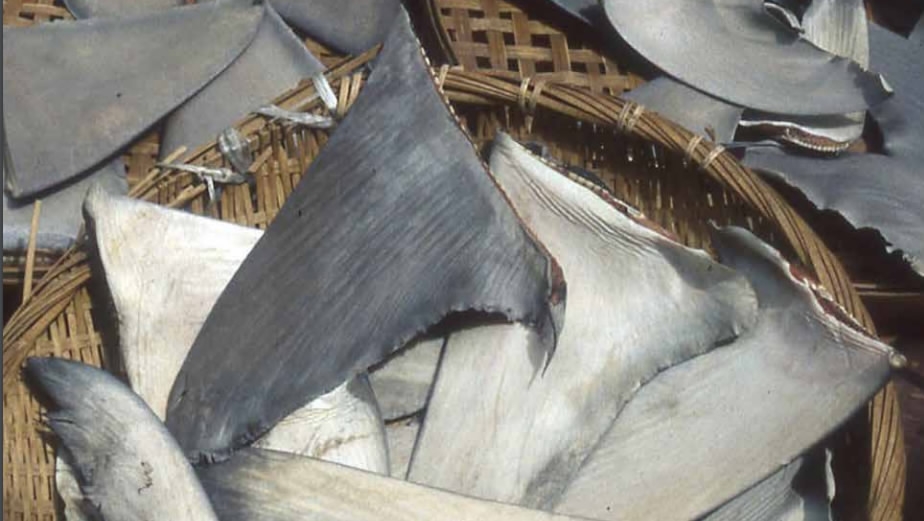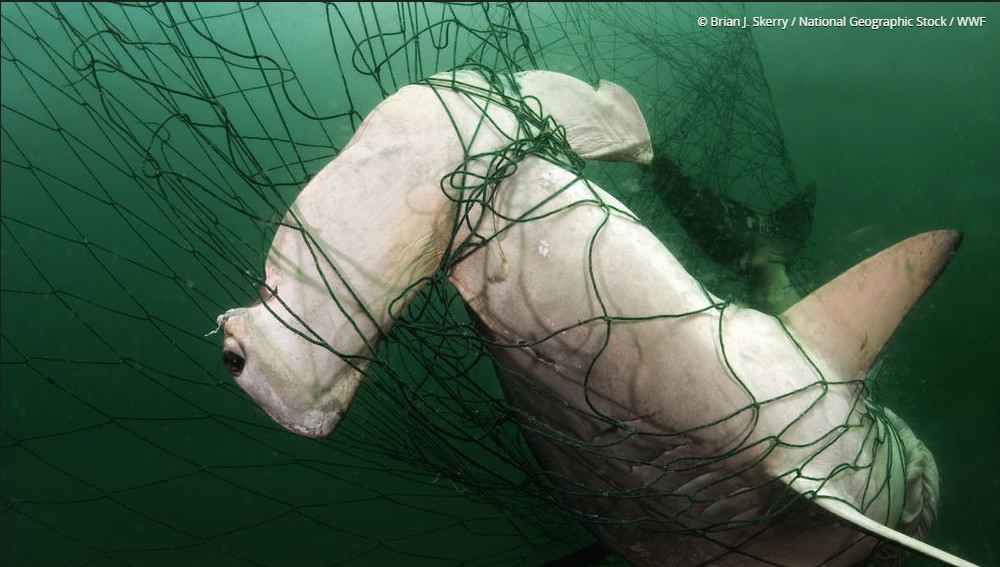
Culture
15:07, 17-Aug-2017
Shark meat consumption: When predators turn into prey
Nadim Diab

Discussion of shark meat consumption in China and other countries and regions in Southeast Asia has floated back to the surface following news of Ecuadorian authorities seizing 300 tons of fish, including vulnerable and endangered species of sharks.
The haul, found on a Chinese vessel, was described as the biggest ever in the Galápagos, and highlights the dangers the already sinking shark population continues to face because of trade in the Far East.
Catch of the century
Ecuador's Ministry of Environment announced on Monday that the country's navy had detained a Chinese vessel and its 20-member crew for allegedly fishing what marine ecologist Pelayo Salinas described as "thousands, if not tens of thousands, of sharks" from the waters of the Galápagos National Park.
The marine sanctuary has the largest numbers of sharks known in the world, and unauthorized crossings of vessels as well as fishing and transporting fish are illegal. The ministry said they identified remains of at least two shark species, namely hammerhead sharks and silky sharks, which Ecuadorian authorities consider vulnerable.

Screenshot of Ecuadorian Navy's tweet about the detention of a Chinese-flagged vessel suspected of illegal fishing.
Screenshot of Ecuadorian Navy's tweet about the detention of a Chinese-flagged vessel suspected of illegal fishing.
While the ship was caught sailing through the marine reserve, it was not immediately clear whether the catch came from the same region.
The director of the conservation park Walter Bustos said, "It would be the largest vessel caught within the Marine Reserve. However, the origin of the fish that it transported is still unknown. We will act firmly as to these facts".
A recipe for ecological disaster
Tradition, prestige and health benefits have kept shark meat consumption afloat for centuries in Asia.
Chinese people were introduced to the meat in the Song Dynasty (circa 968 AD) by its founder Zhao Kuangyin. The exotic quality of shark meat and its rarity were the right ingredients to tantalize the taste buds of the monarch – and as a result shark fin soup was created. The dish gained popularity during the Ming Dynasty, as explorer Zheng He sailed to Africa and brought back supplies of the fins.

Scalloped hammerhead, one of the most vulnerable shark species in the world, is seen caught in a net in the Gulf of California, Mexico. /Photo via WWF
Scalloped hammerhead, one of the most vulnerable shark species in the world, is seen caught in a net in the Gulf of California, Mexico. /Photo via WWF
Demand was spurred by the use of shark meat as medicine. The sweet and salty flesh was thought to maintain the function of the five internal organs (heart, liver, spleen, lungs, and kidney), the liver was a rich source of vitamins A and D, while the cartilage was known for its anti-carcinogenic qualities.
The high price tag of the fins made them attractive to the affluent. Shark fin is a status symbol in China, and higher incomes in the world's second largest economy have driven the appetite of a growing middle class.
It is estimated that over 100 million sharks are killed every year, with up to 73 million used for their fins – mostly for consumption in China.
Different countries, different culinary practices
Eating shark meat is a controversial yet common practice in a host of countries, including France, Japan, Iceland and the US, bringing a quarter of sharks to the brink of extinction, according to the International Union for Conservation of Nature (ICUN).

Celebrity power helped raise awareness about shark meat consumption. Chinese basketball legend Yao Ming has been at the forefront of the fight against shark fin soup. /WildAid Photo
Celebrity power helped raise awareness about shark meat consumption. Chinese basketball legend Yao Ming has been at the forefront of the fight against shark fin soup. /WildAid Photo
29 percent of urban Thais had eaten fins within the last year, according to a report published last month by WildAid. A staggering 61 percent said they plan to consume it in the future, citing curiosity and hearsay about how delicious it tastes.
The organization rang the alarm about the situation in Thailand, which in 2015 exported 5,000 tons of shark fins, more than any other country.
"These survey results confirm that there is a strong need in Thailand to raise awareness of the impacts of shark fin consumption and to reduce the demand for shark fin products. When the buying stops, the killing can too," said WildAid managing director John Baker.
A dying business in China?
While demand persists in Thailand, shark meat has been gradually losing its appeal in China thanks to combined efforts from the government, conservationists and businesses.

Air China in January 2017 introduced a "No Shark Fin" carriage policy. /Xinhua Photo
Air China in January 2017 introduced a "No Shark Fin" carriage policy. /Xinhua Photo
In 2013, the country's crackdown on corruption and extravagance among party and government officials dealt a massive blow to shark meat consumption, after the State Council banned delicacies, such as shark fins and birds' nests, from being served in official functions and banquets.
Earlier this year, Air China became the first airline on the Chinese mainland to introduce a "No Shark fin" carriage policy as part of its sustainable development goals. The announcement came on the heels of a similar decision taken in July 2016 by state-owned China Ocean Shipping Company (Cosco Shipping).
Shark fin imports plunged by 82 percent between 2012 and 2015, according to government data, while the price fetched by fins also fell by at least half around the same period.
WildAid reported that wholesale prices of fins in China dropped from 270-300 US dollars in 2011 to 90-150 US dollars in 2014.

SITEMAP
Copyright © 2018 CGTN. Beijing ICP prepared NO.16065310-3
Copyright © 2018 CGTN. Beijing ICP prepared NO.16065310-3